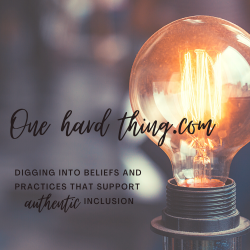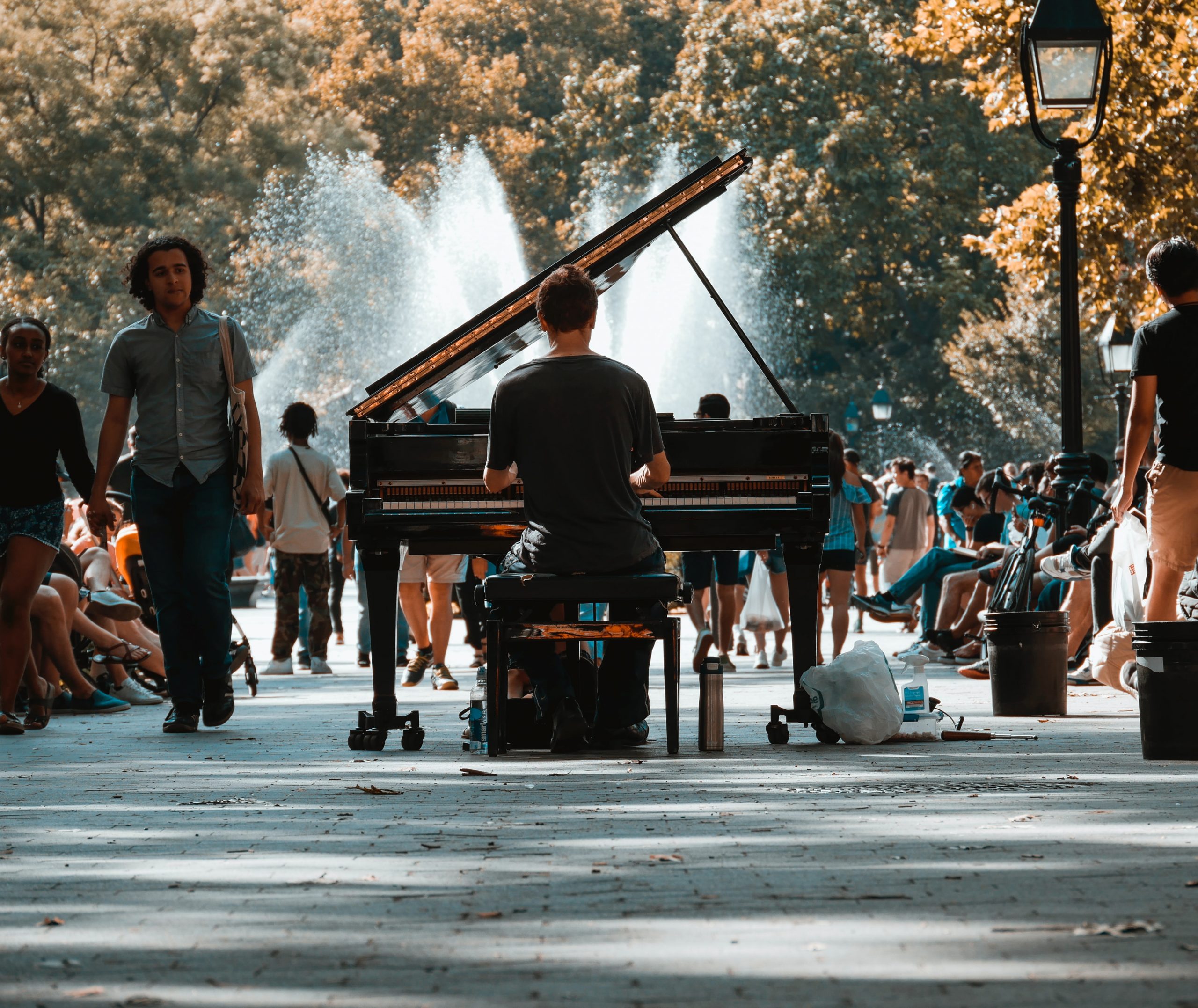I have been struggling with the point of inclusion. It’s such a broad word, and, like religion, it covers so many sins. Who includes whom? The whole concept of inclusion presupposes some are let in, and that therefore maybe others are kept out. In other words, somehow gatekeeping is happening.
I suppose gatekeeping is happening. We are all complicit. No one is entirely innocent and victimized in this discussion, just as no one is entirely evil.
I cannot imagine a world without categories. That world would make no sense, and would be terrifying to boot. We need to have paths, homes, places of work, places of belonging. And we can’t all belong everywhere equally. We belong in a place that fits us more specifically, more particularly than other places. We choose, and we gate-keep to protect our places, and spaces. It’s not the protection that is wrong, it’s how we decide on what is (or who is) the threat. It’s the simplifications that make this troublesome. It’s the assumptions that make asses of u and me.
So what are we really trying for, in saying we want inclusion in education, and more than that, in society? What are the coveted resources that all humans want, need, are entitled to by intrinsic worth and “human-ness?” What does it look like to be included, rather than excluded? And how do we both protect and preserve special-ness of place, function, purpose? Without denying the “special-ness” of everyone?
I don’t think that everyone should be everywhere and do everything. But then, how many of us would really like that? Instead, I believe inclusion as a concept starts with dignity. Dignity, and my right as an individual, to live a life that I both imagine and am willing to work towards. In other words, I think inclusion is really about choice.
I imagine inclusion not as a conceptual world without walls (formless, void, chaotic, very stressful). Instead, I see it as a large village, with many purpose-built and highly unique structures. The important thing is that, in this village, the doors are open to each building, each functional place, each potential site for human occupation and relating. Inclusion just means that in this village, every person belongs first. Beyond and because of that belonging, each person is free to choose when, where, and how they want to contribute, express themselves, and explore, and so they choose which doors to walk through.
Tearing down entire structures that were useful and served a purpose for the whole group, because of historical, actual, or perceived restrictions to entry, is not inherently inclusive. Rather, it just diminishes the society, by reducing choices for access to meaningful learning, and meaningful discovery. Wouldn’t we do better to instead figure out what defines those structures (form, function, and vision), and what limits to access are still in place that might prevent interested and potentially contributory individuals or even whole groups from entering? We need to tear down the barriers, not the whole blacksmith’s shop!
We need to examine the hoops we ask people to go through to enter places of learning, worship, legislative debate, business, and play. We need to make sure that those hoops enhance the purpose of the structure by sorting in those who are truly interested and willing to sacrifice what is necessary – not just to succeed outwardly, but to inwardly receive the benefit of participation. While this process may justify some restrictions on entrance, we need to question very carefully what sacrifices are truly necessary for involvement in any particular endeavour. Those sacrifices may not be what was historically or traditionally demanded. Calculation of risk/reward is, after all, not a science/math question. It is a human one. Best done by the individual contemplating both the risk and the reward.
“We” used to assume that only males would be able to concentrate well enough to be doctors and lawyers and judges and civil engineers. “We” used to consider women incapable of protective or strength-based roles such as in the military, policing, emergency services, and even politics. “We” used to think that gender determined nurturing and capacity for empathy, as well as colour and style preferences. “We” used to think that disabled people belonged in places of 24 hour care, and nowhere in public, so others would not be distressed by their appearance. “We” used to think race limited intelligence and sorted people, both by character and upper limits of class. “We” used to think a lot of things that “we” now know are not at all true, and which never were anything but justification for some people to receive privileges denied to others.
We need to be incredibly careful about our gatekeeping, if we are going to do a good job of inclusion.
We need to tear down the assumptions and gates that have slowed our progress as a society and contributed to incalculable suffering across all of the human race. We need to open doors that have previously been shut to marginalized groups. We need to remove barriers for those with varying abilities but high interest. We need to dismantle rules and processes that serve to keep the powerful in power and the disenfranchised silent and power-less. We need to do this because inclusion benefits everyone by not only reducing privation, but also by unleashing potential that has been locked in the shadows at the edge of the playing field, the lab, the combat zone, the ground zero, the family.
I think the point of inclusion as a term is really that, vague and imprecise as it is, it can function as a starting point for dialogue – about what we used to think, and what some of us privately still think, and what some of us think might be possible.
The parameters of the dialogue could be the nuts and bolts of ensuring and preserving the right of every single person to step through doors. Further, it could extend to finding ways to make more visible, accessible, and safe the paths to, and through, those doors. It could branch out into exploring how it is that certain doors more strongly interest, intrigue, or call to the uniqueness in our psyches. Is this also a form of restriction? Or is it inherently miraculous?
Inclusion as a broad metric then, should not measure equality or uniformity or a levelling off of previously unequal participation. I believe Inclusion should measure each individual’s experience of real life options, against what they wish were options. Inclusion should not measure success (external, norm-referenced, competitive) in participation either; instead it should measure the ability to persevere in the act of engagement in an activity. Based on human differences, both the process of engaging and the outcome of persevering may be discouraging for some. However, because participation in the endeavour is itself a reward, many people may choose, if allowed, supported, encouraged, and kept safe (from harm, not discouragement), to persevere anyway. Success or external achievements are only a byproduct in an inclusive paradigm, after all. Meaning is the point, and meaning is entirely subjective.
We choose to approach doors that hold meaning for us, and when those doors are shut in our faces, we suffer. When those doors open, we may suffer as well, but it will be because after crossing that threshold, we embark on a hard path we have chosen. And that, my friends, is the basis of dignity.

It is our human right to battle adversity in uniquely individual ways, and sometimes for reasons that are inscrutable to outsiders of our own heads and hearts. Inclusion means every single one of us are free to do battle on the ground we choose. We do this within structures we choose to enter, for reasons that speak to our deepest selves. Inclusion, done well, simply allows all humans to engage in the full human experience.
Let’s keep talking. How do we do this? – that’s the point of this website. One hard thing. At a time.


